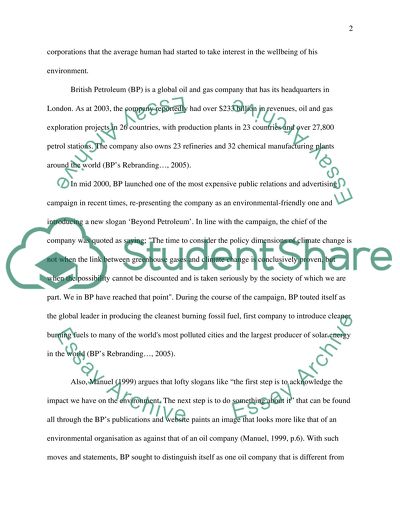Cite this document
(“To What Extent is BP Guilty of Greenwashing Literature review”, n.d.)
To What Extent is BP Guilty of Greenwashing Literature review. Retrieved from https://studentshare.org/marketing/1514661-marketing-ethics-essay
To What Extent is BP Guilty of Greenwashing Literature review. Retrieved from https://studentshare.org/marketing/1514661-marketing-ethics-essay
(To What Extent Is BP Guilty of Greenwashing Literature Review)
To What Extent Is BP Guilty of Greenwashing Literature Review. https://studentshare.org/marketing/1514661-marketing-ethics-essay.
To What Extent Is BP Guilty of Greenwashing Literature Review. https://studentshare.org/marketing/1514661-marketing-ethics-essay.
“To What Extent Is BP Guilty of Greenwashing Literature Review”, n.d. https://studentshare.org/marketing/1514661-marketing-ethics-essay.


